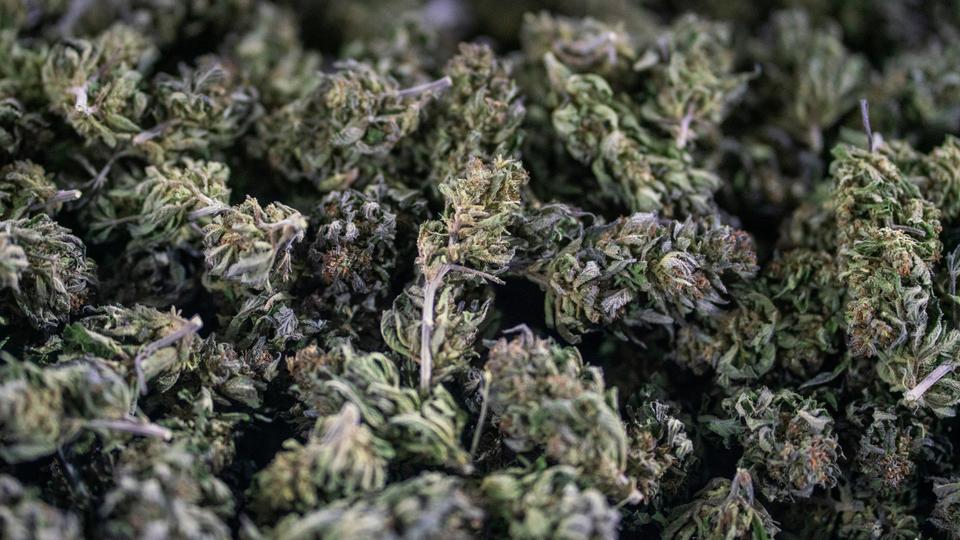Source: fool.com
Yes, but expect legalization efforts for recreational use to proceed unevenly from state to state.

IMAGE SOURCE: GETTY IMAGES.
With companies like Aurora Cannabis (NYSE:ACB), Canopy Growth (NYSE:CGC), and Tilray (NASDAQ:TLRY) catching the attention of investors and consumers alike, it's no surprise that marijuana legalization is a hot issue in the U.S. According to a report by Grandview Research, the U.S. market for cannabis was worth $11.3 billion in 2018, with an expected growth rate of 14.5% per year through 2025 -- but that might be contingent on further loosening of prohibition laws. As of 2018, 21 states have debated legislation that would legalize recreational use of marijuana, and 33 states have already legalized some forms of cannabis for either recreational or medicinal use.
Presently, marijuana is fully legal for recreational use in only 11 of those states. With the exception of Vermont, jurisdictions with legalized recreational cannabis also provision for the commercialization of cannabis products for adults. Fully legalized marijuana remains uncommon in the United States, even if it's significantly more common than it was 10 years ago.
2020 may see pivotal victories for legalization
In 2020, a handful of states will vote on full or partial legalization via referendum, including Arizona, Mississippi, Montana, Nebraska, New Jersey, and South Dakota. It's reasonable to suspect that at least a couple of these political efforts will fall short, but legalization proponents shouldn't despair. Many of the states that eventually legalized recreational cannabis via referendum had to try more than once before succeeding, as is typified by California's failed ballot initiative in 2010. But cannabis investors will be pleased to learn that no state that decriminalized or legalized recreational use has repealed it, despite several different attempts via ballot measures. Thus, the country looks like it's on track for legalization to make progress this election cycle, even if there's still a long way to go.
Even as states move to reform their cannabis laws, federal regulatory bodies like the Food and Drug Administration (FDA) are prohibited by federal law from participating in quality control or consumer safety efforts. This means that as legalization advances, state governments need to build new infrastructure to make sure that their cannabis regulations are locally enforceable, thereby introducing a large amount of overhead to the legalization process. It may also make it harder for international cannabis companies to compete in the U.S. because they'll need to deal with many different sets of regulations rather than just one.
Medicinal use and decriminalization aren't the same as legalization
Full nationwide cannabis legalization is still a distant goal, and there are many cases where progress has been incremental rather than transformational. Sixteen states have decriminalized recreational marijuana use without implementing full legalization for recreational purposes. In these states, cannabis products are only sold for medicinal use, which is strictly controlled. In places like Idaho and Indiana, medicinal use is so tightly regulated that medicinal products from jurisdictions like California might not be legal. This is a concern for cannabis investors because it means businesses would need to make different products for these jurisdictions if they wanted to compete.
Similarly, many states haven't committed to full decriminalization despite allowing for limited medicinal use. In Alabama, non-medical marijuana possession is a misdemeanor for first-time offenders and a felony for subsequent violations, so its "decriminalized" status is a bit of a misnomer. In contrast, Georgia's laws tightly control the THC content of medicinal marijuana while formally forbidding any recreational use, but cities including Atlanta and Savannah have proceeded to decriminalize it anyway, creating precarious pockets of opportunity that businesses are hesitant to exploit.
Finally, there's the issue of the federal government's approach to cannabis policy. Right now, there's no way to reconcile the fact that at the federal level, recreational cannabis is still fully illegal, even if state governments like New Hampshire's claim to have nullified the federal prohibition. State-level initiatives aside, Congress was initially scheduled to vote on a legalization bill called the MORE Act this week, but with an upcoming battle over Supreme Court nominees looming, the vote will likely be delayed until after the 2020 election.
So, while it does look like there is nationwide momentum building behind legalization for recreational use, there's still a long way to go, and there may be difficult legal battles ahead.






